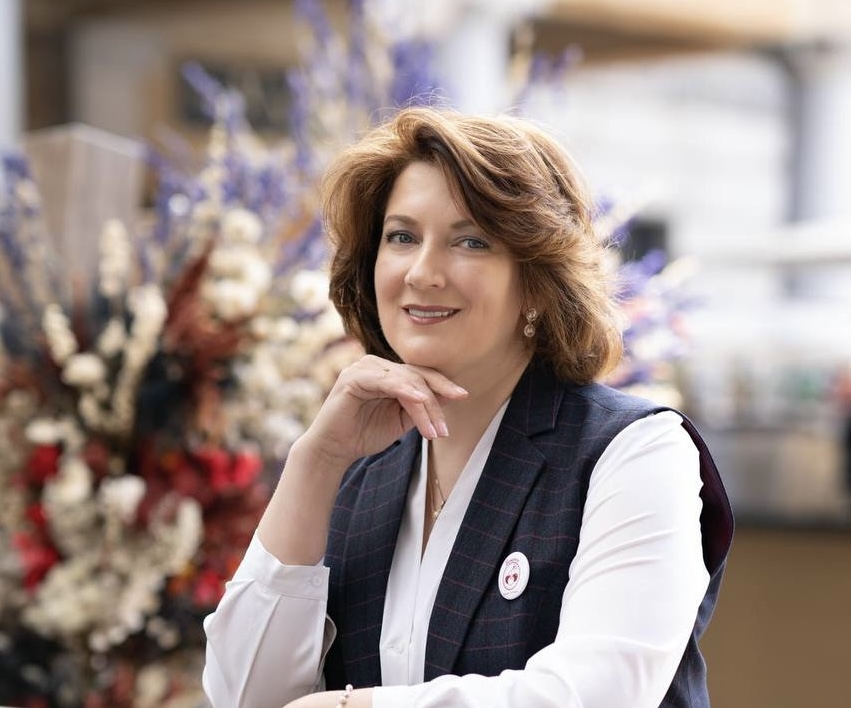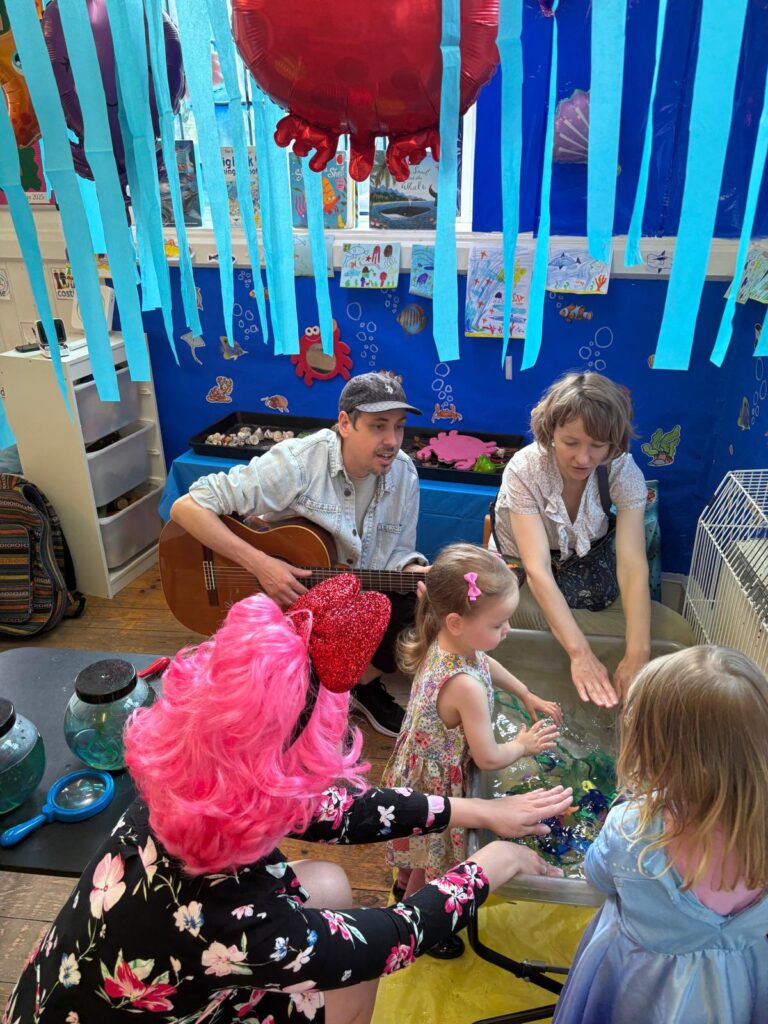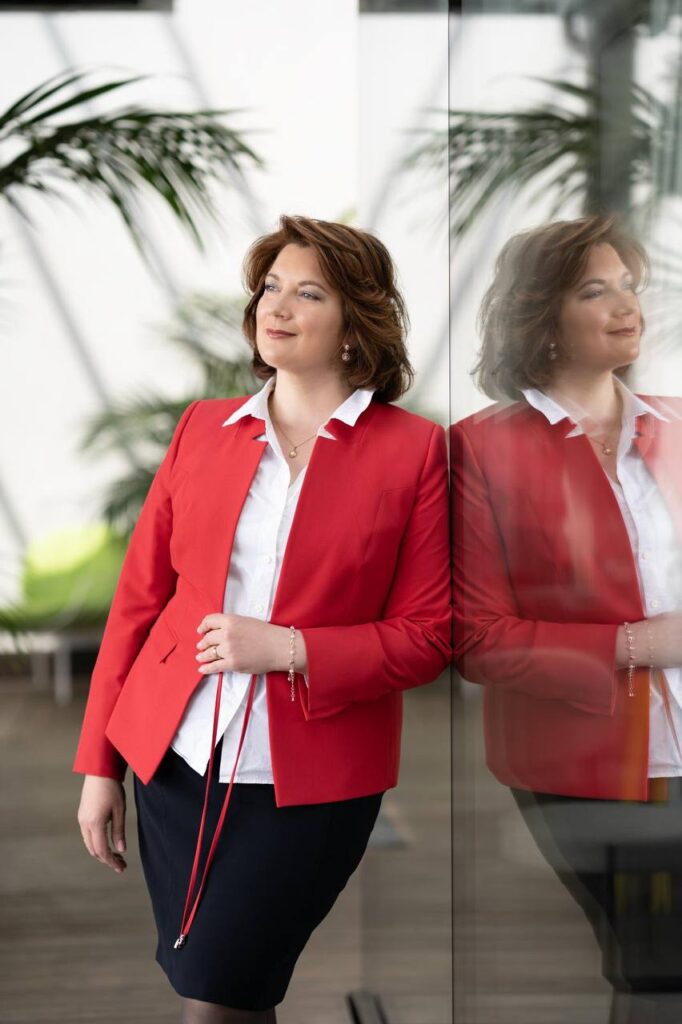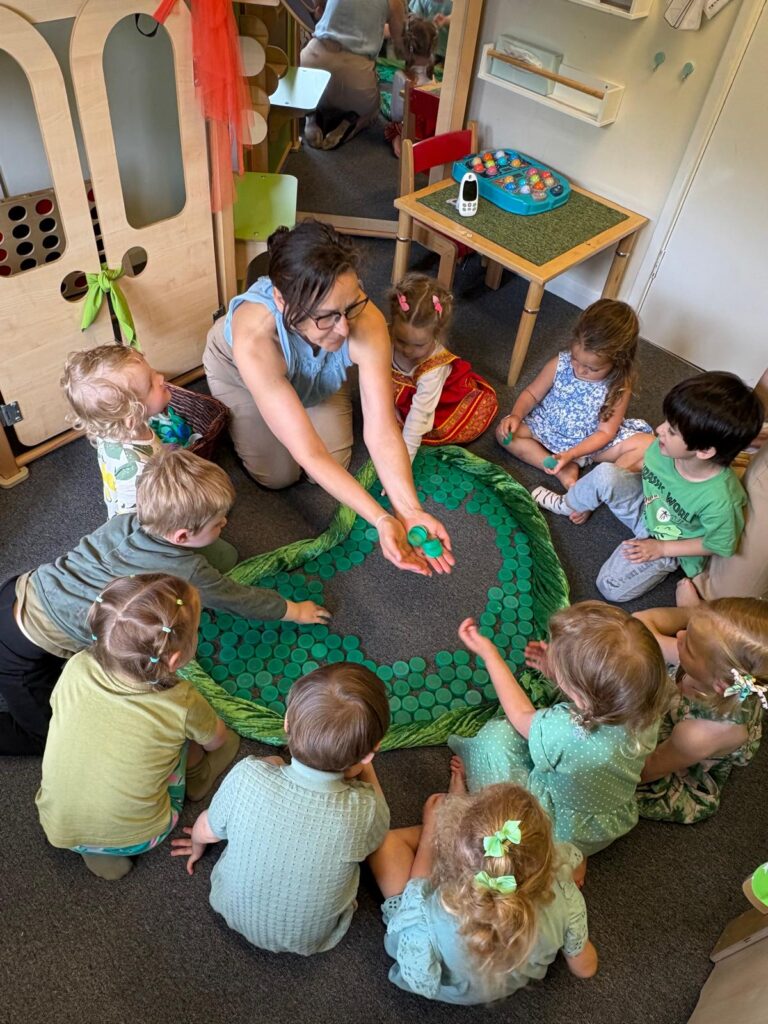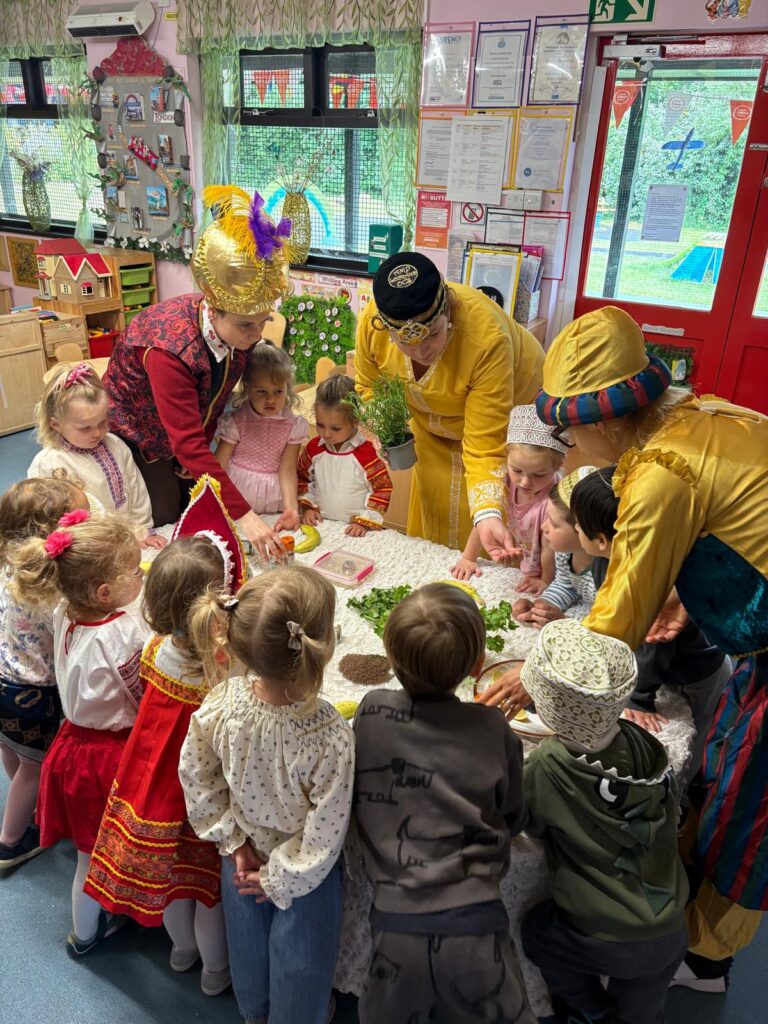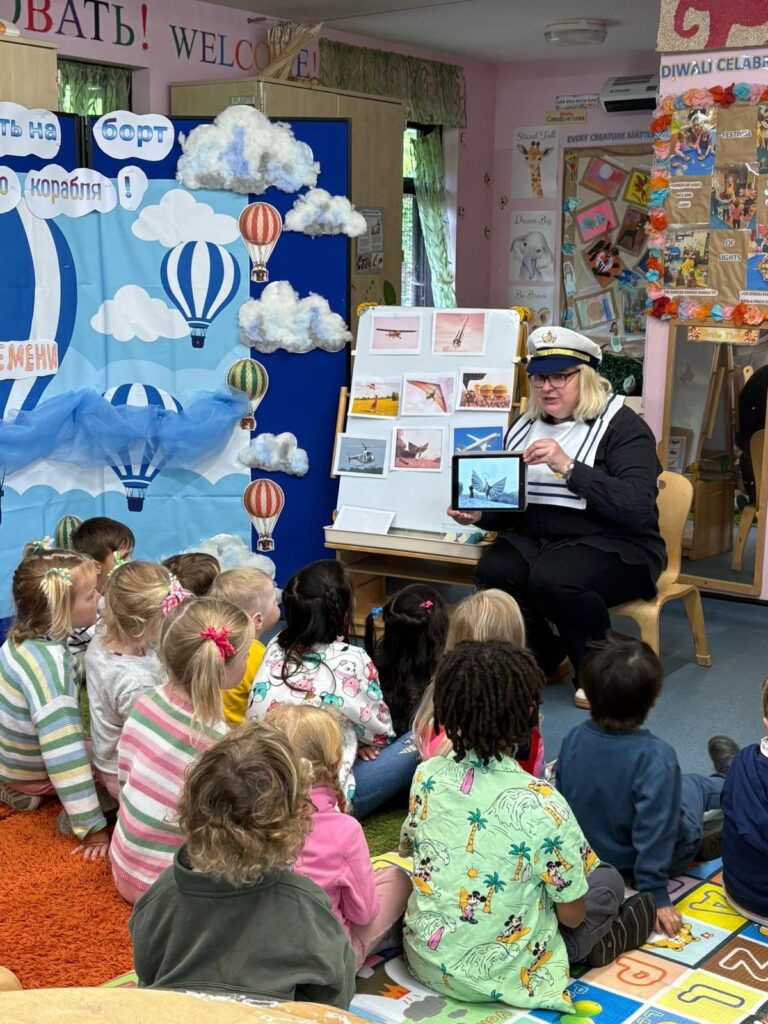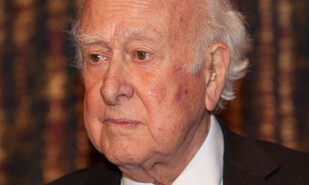What does it mean to preserve a language when its cultural context is fading away? Can you adapt to a new country without losing your identity? And how do you turn multilingualism from a barrier into an advantage? In London, among countless educational institutions, one school stands out: Cherry Orchard, a Russian school and kindergarten founded by Tatyana Henderson-Stewart, now with three branches — in Kensington, Fulham, and West Hampstead. We spoke with Tatyana about how language shapes personality, why children need “risky play,” and why cultural education is not a luxury but a necessity.
Grants, Risky Play, and Pancakes: Tatyana Henderson-Stewart’s Vision for the Cherry Orchard Russian School
Татьяна, в чём состоит главная миссия Вашей школы?
Наша миссия — гораздо шире, чем простое обучение русскому языку. Мы работаем с детьми, которые растут в среде культурного и языкового смешения, когда мама, зачастую, говорит на одном языке, папа на другом, а окружающая среда — вообще на третьем. Поэтому задача — не просто дать знания, а помочь почувствовать, что русская составляющая — это нечто живое, важное, ценное.
Язык формирует мышление, эмоции, восприятие. Он влияет на то, как человек видит мир, как шутит, чувствует. Наши дети живут в Британии, но в них самих существует ещё и русский пласт культуры, поэтому важно, чтобы он не растворился.
А как возникла сама идея создать школу и детский сад?
Всё началось с того, что работая в англо-французской школе, я видела, как много в учебное заведение приходит русскоязычных семей. В какой-то момент родители попросили создать хотя бы русский кружок после занятий. Так в 2010 году появился первый after-school club. Затем добавились субботние и воскресные занятия, потом лагерь. А позже появился детский сад. То есть, все эти форматы родились не «сверху», а благодаря «живому» запросу родителей. При этом Cherry Orchard постоянно адаптируется — кому-то нужно больше занятий, другим гибкое расписание или работа с фокусом на британскую систему образования.
В чём различие между всеми этими форматами — after-school club, субботняя и воскресная школы, лагерь, детсад?
В after-school club дети приходят после основной школы и занимаются русским языком — читают, пишут, говорят. В лагере мы делаем упор на речь и расширение словарного запаса: проводим тематические недели — например, «Межпланетное путешествие» или «Остров динозавров». Это весело, насыщенно и одновременно с пополнением словарного запаса в игровой форме.
Субботняя школа — более академичная, с расписанием и предметами. Воскресная — с мягким ритмом, с играми, прогулками, сказками. Детский сад — уже полноценное лицензированное учреждение, соответствующее стандартам Ofsted. У нас недавно побывали две инспекции, и обе поставили оценку Good, что, конечно, очень радует.
Причём, со второй проверкой смешно получилось: мы открываем дверь, — на пороге стоит инспектор. Говорит, не смогла дозвониться. Она нам предложила перенести инспекцию на другой день, но мы впустили её без всякой подготовки. А я знаю, что даже известные английские детские сады готовятся к проверкам Ofsted ночами. И в итоге получили Good. Считаю, это наше самое большое достижение.
Насколько сложно найти педагогов, которые говорят по-русски и при этом ориентируются в британской образовательной системе?
Очень сложно. Как правило, таких специалистов единицы. Чаще всего мы берём людей с педагогическим образованием и опытом работы из Украины, Беларуси, Прибалтики, России, Казахстана и обучаем. Отправляем на курсы, помогаем с британской квалификацией. Это долгий процесс, но результат стоит того.
Как Вы совмещаете британскую систему образования с русскими традициями?
Мы понимаем, что дети всё равно пойдут в британские школы, поэтому костяк у нас британский. Но дополненный нашими уникальными подходами и культурой: не противопоставляем, а обогащаем. Для самих детей это логично: они живут в Британии, но несут в себе еще и другое наследие.
Сотрудничаете ли Вы с логопедами, психологами, терапевтами?
Да, у нас есть своя сеть специалистов. Мы не держим их в штате, но при необходимости подключаем к учебному процессу. Особенно это важно для детей с особенностями развития: наблюдаем, составляем планы, обращаемся в местные городские советы, направляем к логопедам как англоязычным, так и русскоязычным.
А что с родителями — Вы как-то вовлекаете их в школьную жизнь? Есть ли совместные проекты, мероприятия, формы обратной связи?
Очень многое! Cherry Orchard дважды участвовала в крупных инициативах и получила Bronze и Silver Award от Healthy London — это проект мэра Лондона. За этими наградами — огромная работа, в которой участвовали и дети, и родители.
В детском саду устраиваем спортивные дни, зовём родителей рассказать о своих профессиях. Приходили специалисты GP, нутриционист, недавно одна мама-стоматолог рассказывала детям о зубах, подарила всем щётки, объяснила, что такое кариес и здоровое питание — занятие было и для родителей, и для детей. Бывают Quiz Nights, праздники, куда приглашаем семьи. Вообще мы всегда открыты к диалогу: если у родителей есть вопросы — договариваемся о встрече и обсуждаем.
Даже в субботнюю школу мамам и папам можно зайти с ребёнком в класс — не все дети легко адаптируются в новой обстановке, особенно если группа не из обычного окружения. Это очень нежный возраст, и мы стараемся работать с ребёнком через семью.
А что касается помощи с адаптацией к жизни в Британии? Особенно сейчас, с новой волной эмиграции, это, наверное, особенно актуально.
Конечно. Мы всегда стараемся помочь. Например, в рамках одного из проектов делали рассылки с советами: как найти русскоязычного врача или NHS-стоматолога, как организовать быт с маленькими детьми и так далее. Подсказываем, где есть детские площадки, куда сходить на каникулах, рекламируем воркшопы и спектакли на русском языке.
Вы упомянули участие в проекте Healthy London. Что это за мероприятие?
Это проект на тему risky play — игры с риском. Мы получили за него silver award. Почему risky play? Потому что современные дети всё больше находятся в среде ограничений: «не лезь», «не трогай», «осторожно». Они часто не знают, на что способны физически. А ведь когда мы были детьми, всё было по-другому: висели на деревьях, прыгали в лужи!
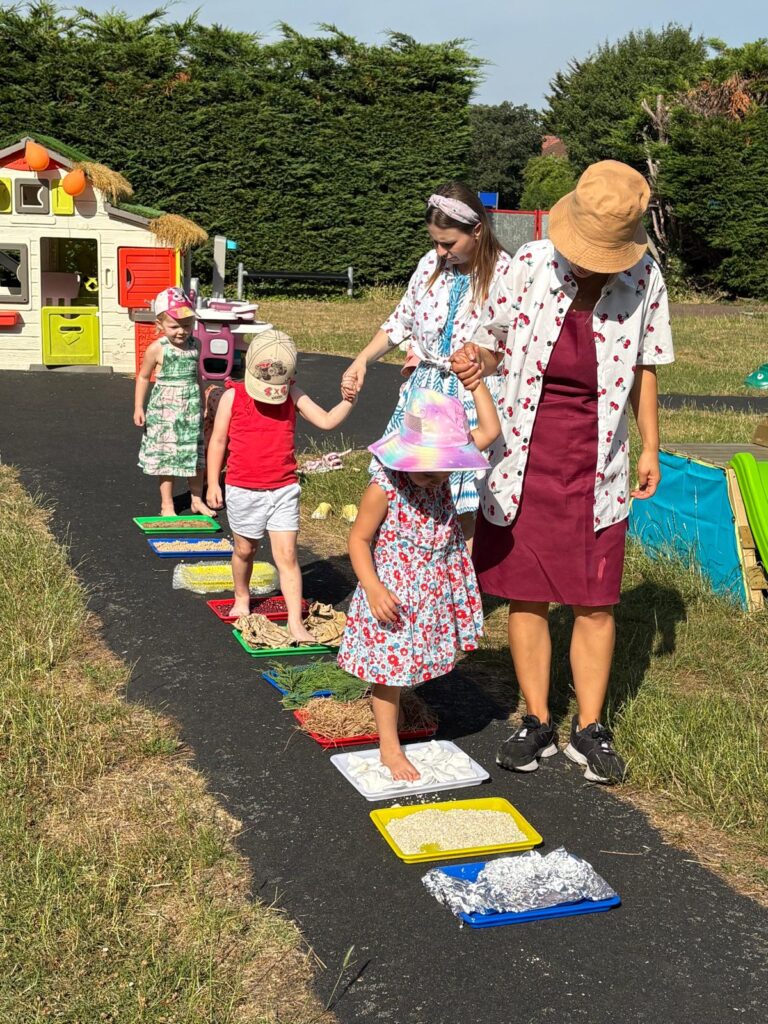
Так вот: в нашем детском саду организован комплекс занятий. Забиваем гвозди в дерево настоящими молотками — ни одного ушиба! Прыгаем с пеньков, играем с водой, даже подносили свечу к ладошке (под контролем взрослых, конечно). Нужно ведь понять, что такое горячо, а что — безопасно. Дети в восторге! Правда, учителя вначале боялись, но потом поверили в эффект. Нам даже выдали грант, чтобы купить снаряжение для таких игр.
Почему в обычных британских детсадах, по-Вашему, не делают подобного?
Потому что это требует дополнительного времени и сил. А мы готовы заниматься не по инструкциям, делать больше. Участие в таких инициативах подразумевает отчётность, описания, фотографии — это огромная бумажная работа. Но мы вовлеклись — и не пожалели. Cherry Orchard заметили, похвалили, поддержали.
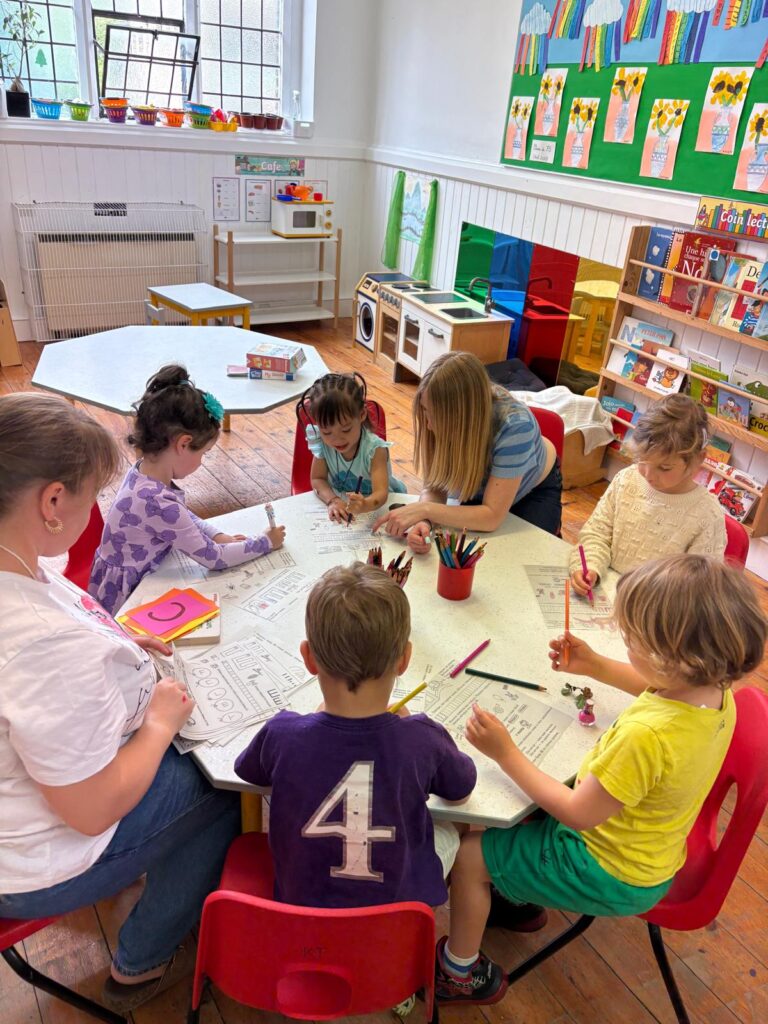
А что касается культурной составляющей, празднуете ли русские или международные праздники?
Еще бы! У нас проходят International days. Вот недавно проводили «Путешествие в Арабию»: это — танцы, костюмы, музыка, письменность, блюда и атрибуты быта. Еще, к примеру, «путешествовали» в Литву: одна учительница пришла в национальном литовском костюме, станцевала традиционный танец, угостила всех литовским пирогом. В другие разы мы пекли американские панкейки, ели русскую гречку с молоком.
Детям важно видеть разнообразие мира. Мы всегда отмечаем китайский Новый год, Дивали. Рассказываем, почему улицы украшены фонариками, кто такие Шехерезада и Рама, почему в эти дни люди одеваются по-особенному. Масленицу тоже проводим — с костюмами, блинами, рассказами о солнце. Стараемся, чтобы праздник был не просто формальностью, а настоящим событием.
В чём, на Ваш взгляд, основная сложность воспитания детей в многоязычной атмосфере?
Сложность, прежде всего, в родителях. Они должны сделать этот выбор осознано, идти до конца и не лениться. Да, придётся рано вставать, везти ребёнка куда-то, делать с ним домашку — всё требует усилий. Но именно родитель должен мотивировать. Дополнительное образование требует совсем другого уровня вовлечённости, чем общешкольное.
Есть много русскоязычных специалистов, а вот тех, кто может действительно зажечь интерес, — единицы. Хотя без этого дополнительное образование не работает. Я преклоняюсь перед родителями, которые упорно занимаются с детьми. Кириллица, второй язык — всё очень полезно для мозга. Учёные давно говорят: чем больше языков, тем больше нейронных связей. Кроме того, расширяется культурный багаж, профессиональный инструмент, язык выделяет тебя, даёт доступ к другим возможностям, в том числе карьерным.
Какие у Вас планы на развитие школы и детского сада в ближайшие 5–10 лет?
Нам хочется развиваться, открыть дополнительные филиалы. Потому что многим семьям приходится ездить в Cherry Orchard и в Little Cherry издалека. Также думаем запустить экспериментальные классы. Например, применять нестандартные методики восприятия материала, давать детям не только язык и математику, но и настоящую науку, программирование. Нужно бы развивать у детей и смекалку, логику, способность решать сложные задачи — то, что не так просто автоматизировать. Искусственный интеллект бросает вызов устройству мира, поэтому важно учить детей тому, что AI не сможет заменить на данный момент: креативности, реакции, гибкости мышления.
Но пока не все семьи к этому готовы. Я вижу, как поднялись цены, вырос VAT, многие начали экономить. Даже такие базовые вещи, как продлёнка и breakfast club, уже становятся статьей дополнительного расхода родителей при острой необходимости. Поэтому приоритет — язык, литература, математика. Но мечтаем о большем.
Сейчас дети перестали читать, и, мне кажется, нужно искать другой подход, думать, как вернуть чтение в их жизнь. Старые методы не работают. Сама культура чтения ведь, если подумать, никуда не делась — изменилась форма потребления. У детей уже развит «браузинг» — они умеют выхватывать главное из текста, но не вчитываются. Это одновременно и плюс, и минус. Они не могут долго сидеть над книгой, как мы. Если раньше это было массовым навыком, то сейчас по силам единицам. Потому наша задача — понять, как дети воспринимают материал, и адаптировать обучение.
Но ведь у нового поколения есть и свои преимущества?
Конечно! Современные дети обладают совершенно другой логикой. Особенно заметно это на арт-проектах. Они по-другому видят цвет, формы, у них иные ассоциации — два мира: виртуальный и реальный.
И мы стараемся, чтобы реальный был таким же интересным. Проводим яркие праздники, с костюмами, персонажами, играми. Например, ребёнок не просто выходит и читает стишок, а разворачивается целый спектакль: времена года, природа, инопланетяне — фантазия не ограничена. Учителя тоже играют роли. Нужно использовать всё, чтобы ребёнок почувствовал: реальный мир может быть не менее захватывающим, чем игра на планшете.
И как, дети вовлекаются?
Очень даже! Они же все-таки остаются детьми, и, если праздник яркий, забывают об экранах. Главное — игра. Причём игра умная, многослойная. С хорошими декорациями, настоящими историями. Мы стараемся сделать так, чтобы ребёнок погружался в атмосферу, как будто он внутри компьютерной игры — только в реальности. А потом — снимаем костюмы, возвращаемся к повседневности, чтобы показать: реальность тоже интересна.
О чём Вы мечтаете?
Я мечтаю о проекте, который когда-то мы называли «Домом пионеров» или «Домом культуры». Где всё находилось под одной крышей: русский язык, музыка, танцы, спорт, математика, репетиторы, лепка, шахматы и даже большой теннис. Где ребёнок мог бы заниматься сразу всем, а родители — спокойно отдохнуть или поработать. Чтобы закончилась бесконечная беготня по кружкам в разные концы города. Еще там должна быть столовая с нормальной, здоровой едой; тихие уголки, чтобы спокойно сделать домашку; места, где подростки могли бы просто побыть вместе (ни дома, ни на улице, ни в ТЦ), что-то вроде подросткового кафе…
Я пыталась продвигать эту идею, но инвесторы не заинтересовались. Считают, нерентабельно. Гранты — тоже, как правило, небольшие. Особенно, если дело касается русскоязычного контекста. Возможно, нужно подать проект под каким-то другим углом зрения, и тогда получится? И, конечно, он не обязательно должен быть чисто русским. Главное — качество, атмосфера, подход. Важны — среда, друзья. Это многое значит! Думаю, такой проект действительно мог бы помочь и детям, и родителям.

